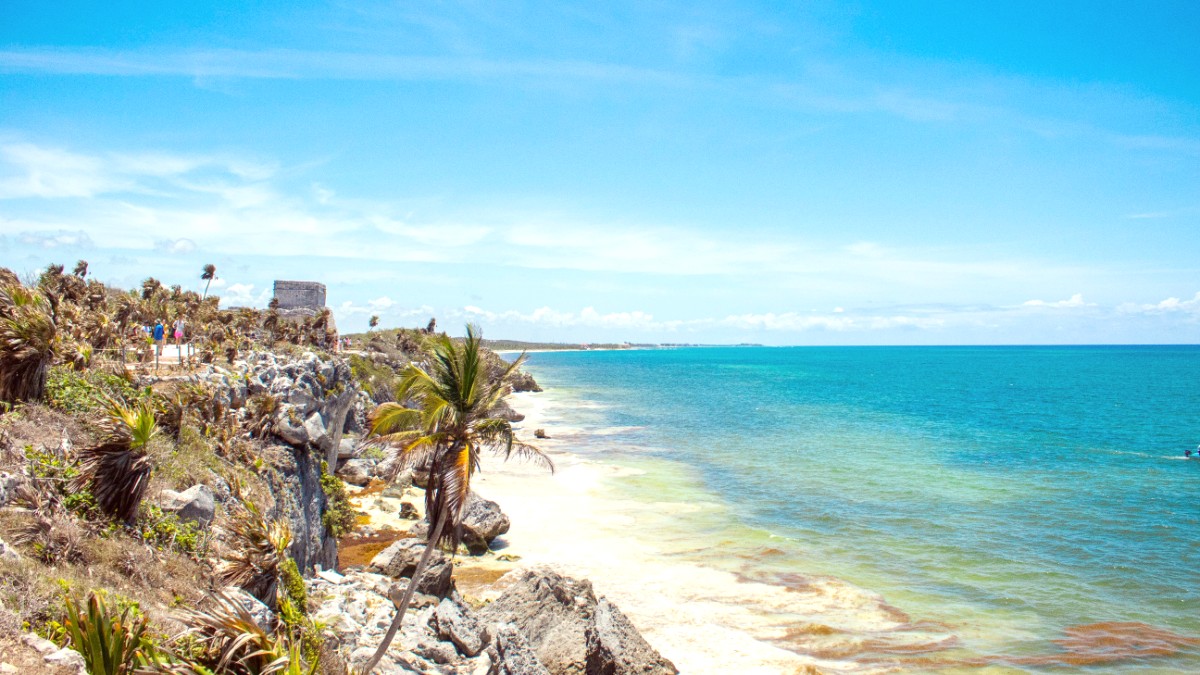
Yucatan Peninsula, Mexico
Tulum features a combination of Mayan heritage, Caribbean beaches, and lush jungle landscapes, creating an atmosphere of calm and adventure. This guide presents the secrets of Tulum, giving you all you need for a rewarding trip.
Tulum stands on the eastern coast of the Yucatán Peninsula. This region of Mexico holds distinction for its flat, porous limestone geology, which forms the area's many cenotes. These natural sinkholes appear when limestone bedrock collapses, revealing hidden underground rivers and cave systems. Cenotes define the region, giving unique swimming and diving experiences.
The town sits directly on the Caribbean Sea, with miles of stunning coastline. This coastline shows powdery white sand and clear, warm turquoise waters. This coastal position brings constant sea breezes and a tropical climate. Inland, the landscape changes into a dense, subtropical jungle, part of the vast Mesoamerican Biological Corridor, a biodiversity hotspot.
Tulum's historical importance centers on its ancient Mayan ruins, a walled city from the Post-Classic period (around 1200-1500 AD). This site was one of the last cities built and occupied by the Maya before the Spanish arrived. Unlike many inland Mayan cities, Tulum was a thriving port, a hub for both land and sea trade.
Its strategic location atop a cliff overlooking the Caribbean Sea made it a strong fortress, giving natural defenses against invasion. The city's original name was likely "Zamá," meaning "Dawn" or "Morning," a reference to its east-facing position, allowing its inhabitants to see the sunrise over the sea. The name "Tulum," meaning "wall" or "trench" in Yucatec Mayan, refers to the impressive walls that surround the site.
Served as a lighthouse, guiding Mayan canoes through the reef opening.
Holds intricate murals, showing glimpses into Mayan cosmology and deities.
Protected the city from inland attacks.
Noteworthy for its stucco figure above the doorway.
A structure built over a natural well, part of the city's water source.
Despite its decline after the Spanish conquest, the site stayed partially occupied for several decades, a testament to the Mayan people's resilience. Today, a visit to the Tulum ruins links visitors to a sophisticated ancient civilization. It makes it possible to walk through structures that once bustled with traders, priests, and astronomers, all against the backdrop of the Caribbean Sea.
This rich history shapes the present-day identity of Tulum, adding layers of meaning to its natural splendor. It invites discovery, giving a canvas for varied travel experiences.
Tulum is a reputation as a sanctuary for those seeking beauty and a slower pace. It blends a laid-back, eco-chic vibe with the deep roots of Mayan culture. The town, while growing, keeps a welcoming atmosphere.
Prepare for a destination that invites you to relax, explore, and find joy in its simple yet profound offerings.
Tulum today captures the imagination with its unique blend of ancient mystique and modern allure. It presents a spectrum of experiences, appealing to diverse travelers.
Start the day with a sunrise yoga session on the beach, followed by an exploration of the iconic Mayan ruins that stand proudly above the turquoise sea. Spend afternoons swimming in the cool, clear waters of a hidden cenote, or relaxing on a pristine stretch of white sand. Evenings bring culinary adventures, from fresh seafood at an eco-chic beach restaurant to authentic Yucatecan street food in the lively pueblo.
Beyond the town, the vast Sian Ka'a Biosphere Reserve calls to nature lovers with its diverse ecosystems and abundant wildlife.
The destination serves different paces and budgets, from luxury to budget-friendly stays.
The "Zona Hotelera," or beach zone, shows its boutique hotels, wellness retreats, and upscale dining, with a bohemian experience.
Tulum is not simply a place to visit; it presents an opportunity to connect with history, immerse in nature, and find personal renewal.